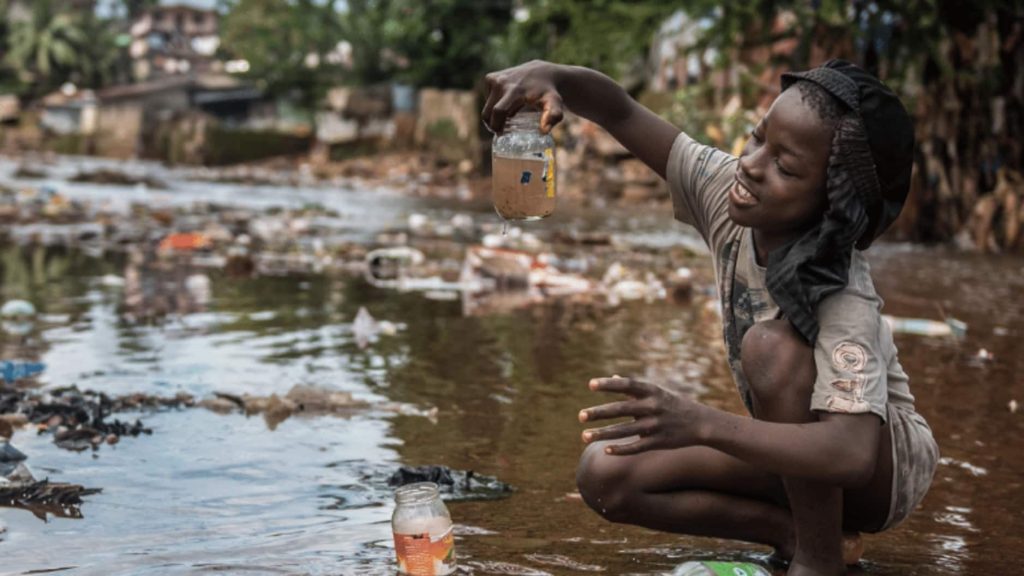Cholera, a serious bacterial infection of the intestine, is caused by the Vibrio cholerae bacterium. It is primarily transmitted through contaminated water and food. Cholera outbreaks often occur in regions with inadequate sanitation and limited access to clean water, posing a significant threat to public health, particularly in developing countries. Understanding the causes, symptoms, prevention, and treatment of cholera is crucial for effectively managing this disease.

Cholera: Causes and Transmission
Cholera is caused by certain strains of Vibrio cholerae bacteria, particularly the toxigenic O1 and O139 serogroups. The bacteria produce a potent toxin that affects the intestines, leading to the characteristic severe diarrhea associated with cholera.
- Contaminated water: Drinking water contaminated with Vibrio cholerae is a major source of infection.
- Contaminated food: Raw or undercooked seafood, especially shellfish harvested from contaminated waters, can transmit cholera.
- Poor sanitation: Inadequate sewage disposal and poor hygiene practices contribute to the spread of the bacteria.
Cholera Symptoms
Cholera typically has an incubation period of a few hours to five days. The infection can manifest as:
- Mild or asymptomatic: Some individuals infected with Vibrio cholerae may experience mild or no symptoms.
- Severe diarrhea: The hallmark symptom of cholera is profuse, watery diarrhea, often described as “rice-water” stool. This rapid fluid loss can lead to severe dehydration.
- Vomiting: Cholera can also cause vomiting, which exacerbates fluid loss.
- Dehydration: Severe dehydration can manifest as:
- Muscle cramps
- Increased thirst
- Dry mucous membranes (mouth, eyes)
- Sunken eyes
- Rapid heart rate
- Low blood pressure
- Decreased urine output
Severe, untreated cholera can be fatal within hours due to dehydration and electrolyte imbalances.
Cholera Treatment
Prompt and appropriate treatment is vital to saving lives during cholera outbreaks. Treatment approaches include:
- Oral Rehydration Solution (ORS): The cornerstone of cholera treatment is rapid and aggressive rehydration using ORS. This solution, containing a precise mixture of salts and sugars, helps to replace the fluids and electrolytes lost through diarrhea and vomiting.
- Intravenous (IV) fluids: In cases of severe dehydration or when individuals are unable to tolerate oral fluids, IV fluids are necessary to restore fluid and electrolyte balance quickly.
- Antibiotics: Antibiotics, such as doxycycline or azithromycin, can shorten the duration of the illness and reduce the severity of symptoms. They are especially beneficial for individuals with moderate to severe cholera.
MedicW Recommendations: Medical Consumables for Cholera Management
- Oral Rehydration Salts (ORS) packets: Provide readily available and cost-effective ORS for prompt rehydration.
- Intravenous (IV) Fluids and Administration Sets: Essential for rapid fluid replacement in severe cholera cases.
- Antibiotics: MedicW offers a range of antibiotics effective against Vibrio cholerae.
- Sampling Swabs and Transport Media: Facilitate the collection and safe transportation of stool samples for laboratory confirmation of cholera diagnosis.
- Personal Protective Equipment (PPE): Gloves, gowns, and masks protect healthcare workers from exposure to contaminated materials during patient care and help prevent the spread of the infection.
Cholera Prevention: Strategies to Prevent Outbreaks
Preventing cholera requires a multifaceted approach, including:
1. Safe Water and Sanitation
- Safe drinking water: Access to clean and safe drinking water is paramount. Water can be treated through boiling, using water filters, or chemical disinfection methods.
- Sanitation and hygiene: Proper sewage disposal, handwashing with soap and water, and food hygiene practices are essential to prevent cholera transmission.
2. Vaccination
- Oral Cholera Vaccines: Oral cholera vaccines offer some protection against the disease and can be used in outbreak settings and for travelers to high-risk areas.
Cholera: FAQs
1. How serious is cholera?
Answer: Cholera can be a very serious illness, particularly in vulnerable populations, such as young children and the elderly. Without prompt treatment, severe cholera can be fatal within hours due to dehydration and shock.
2. Can cholera be spread from person to person?
Answer: While it’s possible, direct person-to-person spread of cholera is less common compared to transmission through contaminated food and water.
3. What should I do if I think I have cholera?
Answer: Seek immediate medical attention if you experience severe diarrhea, especially if it’s accompanied by vomiting. Rapid rehydration is critical in managing cholera.
4. How is cholera diagnosed?
Answer: Cholera is diagnosed through a stool culture, which involves laboratory testing to identify the presence of Vibrio cholerae bacteria in a stool sample. Rapid diagnostic tests are also available in some settings.
5. How long does it take to recover from cholera?
Answer: With prompt treatment, most people recover from cholera within a few days.
6. Is cholera a global health threat?
Answer: Yes, cholera remains a significant global health concern, affecting millions of people annually, especially in developing countries with inadequate water and sanitation infrastructure.
Cholera: Conclusion
Cholera is a preventable and treatable diarrheal disease that disproportionately affects communities with poor sanitation and limited access to safe water. Prioritizing safe water practices, investing in sanitation infrastructure, promoting hygiene behaviors, and providing access to effective rehydration therapies and antibiotics are key strategies in preventing and managing cholera outbreaks.
MedicW plays a vital role in this fight by providing essential medical consumables that are needed for cholera treatment and prevention, empowering healthcare systems and communities to effectively respond to this public health challenge.
We urge individuals and communities:
- Prioritize access to safe drinking water and sanitation facilities.
- Promote hygiene education and proper handwashing techniques.
- Seek medical attention immediately if you experience cholera symptoms.
Working together, we can combat cholera and safeguard public health around the globe.
MedicW is committed to being your trusted partner in providing high-quality medical consumables. Explore our comprehensive range of products and discover how we can support your healthcare needs. Visit us at medicw.com or contact our team at [email protected].
Link to this article: Cholera: A Guide to Prevention, Symptoms, and Treatment
